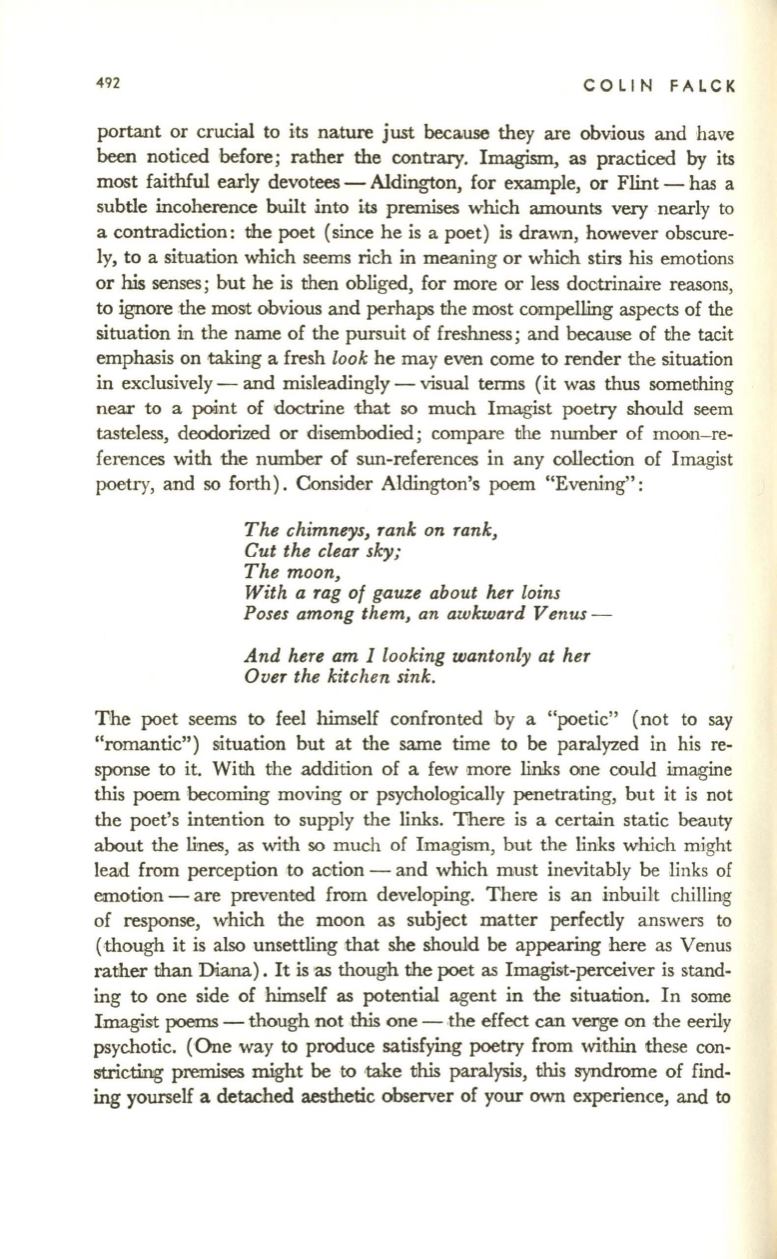
492
COLIN FALCK
portant or crucial to its nature
just
beca.use they are obwous and have
been
noticed before; rather the contrary. Imagism, as practiced
by
its
most faithful early devotees - Aldington, for example, or Flint - has a
subtle incoherence built into its premises which amounts very nearly to
a contradiction: the poet (since he is a poet) is drawn, however obscure–
ly, to a situation which seems rich in meaning or which stirs his emotions
or
his
senses; but he is then obliged, for more or less dootrinaire reasons,
to ignore the most obvious and perhaps the most compelling aspects of the
situation
in
the name of the pursuit of freshness; and because of the tacit
emphasis on taking a fresh
look
he may even come to render the situation
in exclusively - and misleadingly - visual terms (it was thus something
near to a poLnt of doctrine
that
so muoh Imagist poetry should seem
tasteless, deodorized or disembodied; compare the number of moon- re–
ferences with the number of sun-references in any collection of Imagist
poetry,
and so forth). Consider Aldington's poem "Evening":
The chimneys, rank on rank,
Cut the clear sky;
The moon,
With a rag of gauze about her loins
Poses among them, an awkward Venus-
And here am 1 looking wantonly at her
Over the kitchen sink.
The poet seems to feel himself confronted by a "poetic" (not to say
"romantic") situation but at the same time to be paralyzed in his re–
sponse to it. With the addition of a few more links one could imagine
this poem becoming moving or psychologically penetrating, but it is not
the poet's intention to supply the links. There is a certain static beauty
about the lines, as with so much of Imagism, but the links which might
lead from perception to aotion - and which must inevitably be links of
emotion - are prevented from developing. There is an inbui1t chilling
of response, which the moon as subject matter perfectly answers to
(though it is also unsettling that she should be appearing here as Venus
rather
than
Diam:a).
It is
'as
thougih the poet as Imagist-perceiver is stand–
ing to one side of himself as potential agent in
the
situation. In some
Imagiist
poems -
though not ,this one - ,the effect can verge on ,the eerily
psychotic. (One way to produce satisfying poetry from within these con–
stricting premises might be to 'take
this
paralysis, this S}'Ildrome of find–
ing yourself a detached aesthetic observer of your
own
experience,
and
to


